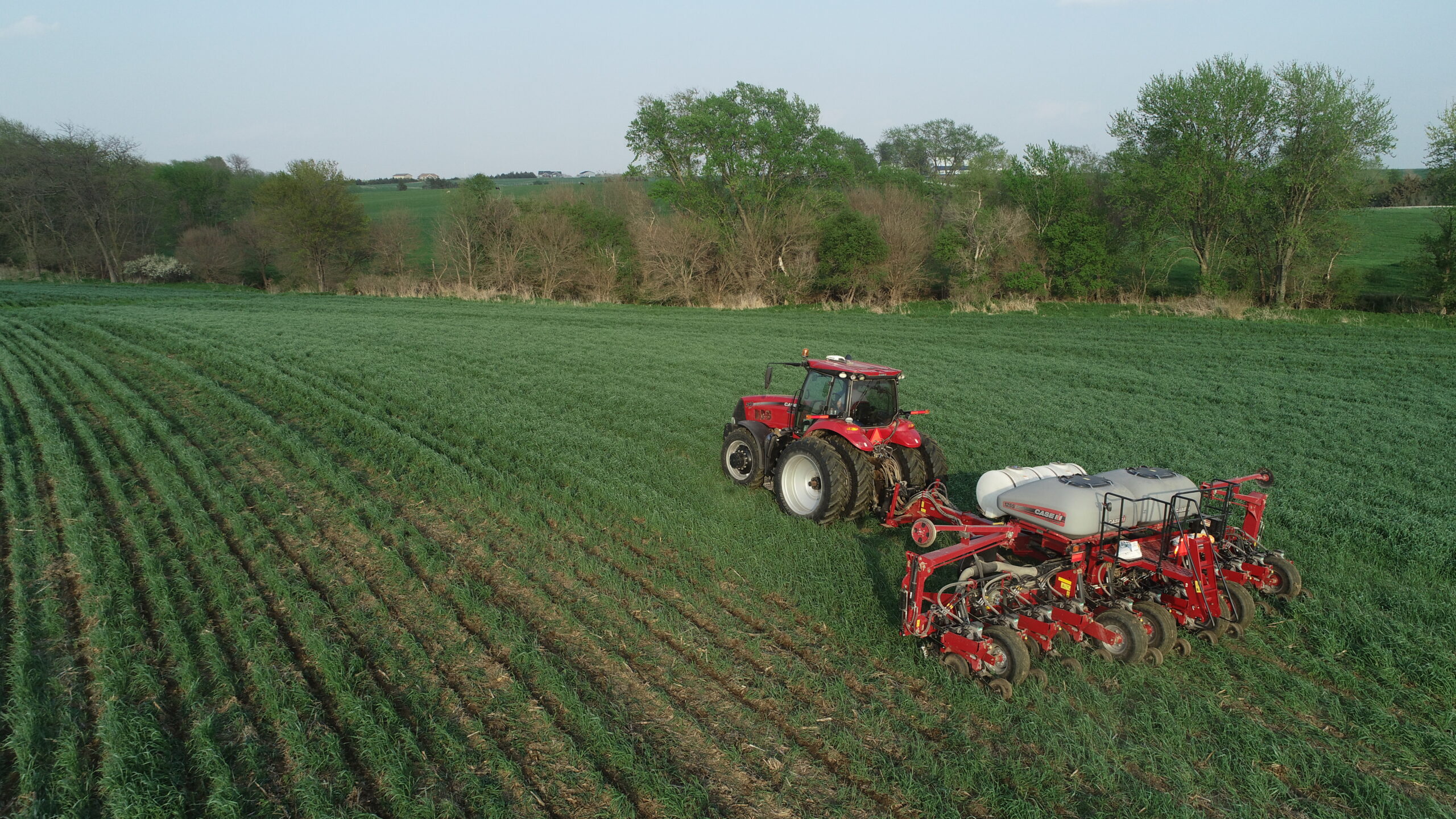
Mitchell Hora, a seventh generation Washington County farmer and founder of Continuum AG, says the shift to regenerative agriculture has resulted in yield and profit increases. Despite only seeing five inches of rain all season, Mr. Hora was able to avoid a farm assistance claim and make a profit. According to a report from Boston […]
Already a subscriber? Log in
Want to Read More?
Get immediate, unlimited access to all subscriber content and much more.
Learn more in our subscriber FAQ.
- Unparalleled business coverage of the Iowa City / Cedar Rapids corridor.
- Immediate access to subscriber-only content on our website.
- 26 issues per year delivered digitally, in print or both.
- Support locally owned and operated journalism.
Do you want to read and share this article without a paywall?
Click here to purchase a paywall bypass linkMitchell Hora, a seventh generation Washington County farmer and founder of Continuum AG, says the shift to regenerative agriculture has resulted in yield and profit increases.
Despite only seeing five inches of rain all season, Mr. Hora was able to avoid a farm assistance claim and make a profit.
According to a report from Boston Consulting Group (BCG) and the World Business Council for Sustainable Development's One Planet Business for Biodiversity coalition, farmers can expect a 15-25% increase in profitability after switching to regenerative agriculture.
“I’m seeing firsthand the opportunities to use regenerative agriculture practices to be more profitable and resilient,” said Mitchell Hora in a statement. “With our use of no-till, cover crops, and other soil health building practices, we’ve decreased our fertilizer use by 50% and our pesticides by up to 75% while increasing our yields. We had hiccups early on but overcame the logistic and economic risks and have found success.”
However, the report, which interviewed more than 100 U.S. farmers, warns farmers could lose up to $40 an acre per year during the transitional stage from traditional to regenerative farming, if a farmer is not adequately supported for three to five years.
Mr. Hora's farms have used no-till since 1978, but started using cover crops in 2015. In a news conference, he said they didn't deploy that new practice correctly, resulting in loss yield.
"We tried to push things too fast, too far in year one, and we needed to be mindful that a little bit more of a transition period is needed," he explained.
Farmers can minimize this risk by utilizing cost share programs, sustainable leases, improved insurance terms, regenerative crop warranties, government subsidies, price premiums, lending programs and more.
“Our goal should be to de-risk the transition from conventional to regenerative systems for farmers,” said Sonya Hoo, managing director and partner, BCG. “Both companies and governments need to step up to the plate to lessen the burden on farmers and accelerate the overall transition to more sustainable farming practices. Our economic modeling shows that in the long run, the switch to regenerative farming is a win-win for farmers, consumers, and the planet.”
The report also found that early adopters cited tangible benefits from regenerative systems – notably healthier soil, reduced input costs, fewer complications from fertilizer run-off, greater biodiversity, and better resilience to extreme climate.
“The time to support large-scale transition to regenerative agricultural practices is now,” according to Doug Petry, report author and manager, One Planet Business for Biodiversity (OP2B), WBCSD, in a press release. “Our findings show that there is a positive business case to be made for transitioning to regenerative agricultural practices - but farmers need more help. The short-term risks during the transition period are significant, which is why we must provide a support structure that includes both financial and technical assistance. We can’t let our farmers shoulder the upfront financial costs of transitioning to regenerative agricultural practices on their own.”
Continuum Ag is a soil health data intelligence company, helping farmers convert to regenerative agriculture. In 2020, the company participated in an agtech accelerator in Memphis, Tennessee.
Elsewhere in Washington County, Kalona SuperNatural also embraces regenerative farming, made possible by its parent company Open Gates Group. They focus on using real livestock (instead of fertilizer), cover crops, and not using synthetic inputs. As a result, soil health improves.
“People are the foundation of the world’s food system and PepsiCo’s business. That is why it is critical to ensure that each farmer has the livelihoods they need to grow, thrive and ensure the long-term health of the global food system,” shared Rob Meyers, VP, Sustainable Agriculture, PepsiCo (an OP2B member).